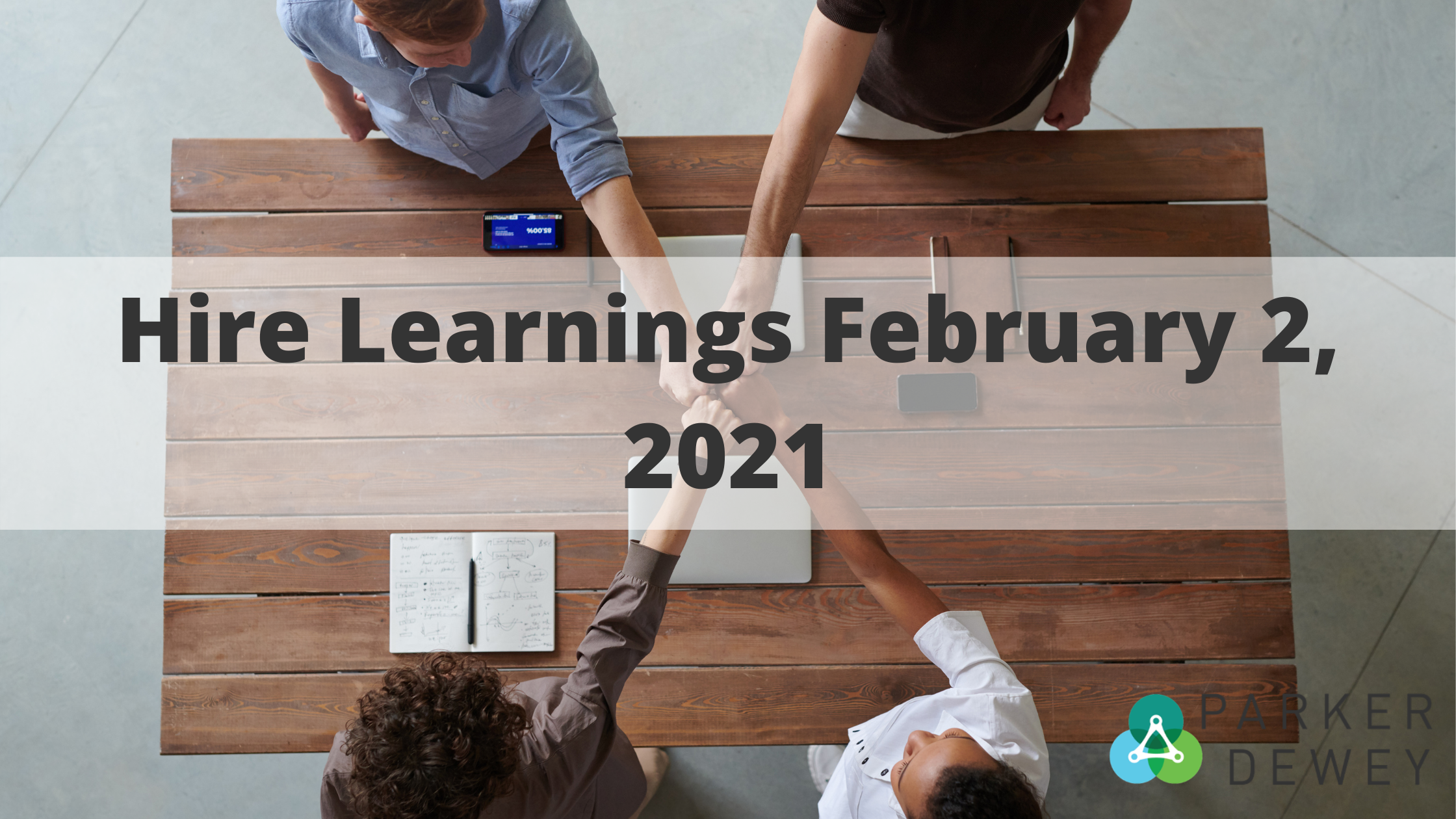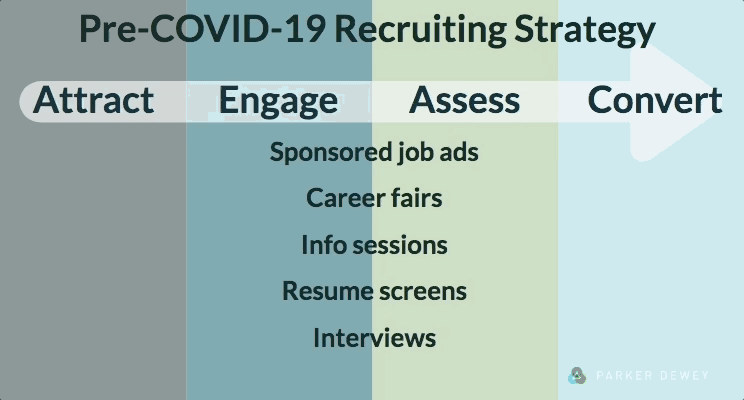
Finding the Right Candidate for your Company
As many of us know, it is not always easy to find the right entry-level hire out of college.Even if a candidate’s resume is fantastic, their interview could show that they lack skills in other areas that don't get captured on paper. Even worse, the interview could go great, but upon getting the job or summer internship, it turns out that the new employee does not have the Core Skills to succeed, or the role does not live up to their expectations. All of this drives a waste of resources resulting in lower conversion, higher attrition, and disappointed employees.
Instead of focusing on ineffective practices to find the right summer interns or full-time hires for your company, more organizations are expanding their Experiential Recruiting efforts. Keeping equitable access in mind, by paying a potential hire to complete projects, a company can assess key skills through actual work, and candidates can be sure that a company or a field of work is the right path for them before accepting a full-time role or summer internship.
Companies and students alike benefit from Micro-Internships. Read more about assessing fit and Experiential Recruiting in my blog post “The Future of Campus Recruiting.”
Jeffrey Moss, Founder and CEO
Articles of the Week
Research: How Companies Committed to Diverse Hiring Still Fail - Harvard Business Review
Challenges, Solutions for College Recruiting at HBCUs - National Association of Colleges and Employers
Why the Rise of Remote Work May Help Companies Become More Diverse — and More Inclusive - LinkedIn Talent Blog
The Crisis of Unemployed College Graduates - The Wall Street Journal
Research: How Companies Committed to Diverse Hiring Still Fail - Harvard Business Review
“It also introduces a socioeconomic bias: The standard internships that firms valued were typically unpaid, and some candidates could not afford to take them and had to work for money instead. This was a first hint that how firms were making their decisions may not always serve their goal of increasing diversity.”
Despite employers’ intent on diverse hiring practices, female and minority candidates continue to be discriminated against. Firms favor unpaid internships over summer jobs, they value internships held by men more than those same internships held by women, and they pursue male candidates more often than female and minority candidates for fear that the latter groups would be “too hard to hire.” Organizations need to ensure that their diversity practices are effective in practice, not just in intention.
Related reading: Are Your Recruiting Practices Undermining Your Diversity Initiatives?
Challenges, Solutions for College Recruiting at HBCUs - National Association of Colleges and Employers
“The gold standard to me is when, from a student’s perspective, an organization is no longer just brick and mortar and reputation, but it now has a recruiter’s name attached to it, and the student has a personal connection there.”
Employers face a lot of challenges in attracting and converting HBCU talent. The most successful recruiters are ones that are dedicated to diversity, equity, and inclusion, and ones that make personal connections with students, rather than simply giving an info session.
Related reading: Campus Recruiting and Challenges with Diversity
Why the Rise of Remote Work May Help Companies Become More Diverse — and More Inclusive - LinkedIn Talent Blog
“If a recruiter knows that their company has historically struggled to find underrepresented candidates locally, they can use data to identify areas where this talent is plentiful — then reach out to far-away candidates with remote opportunities.”
The benefits of remote work are becoming apparent as the practice becomes the new normal. Companies are no longer put in a position to hire based on location, LGBTQ+ employees feel psychologically safe while working from home, and workers with disabilities now have greater access to the workforce.
Related reading: Micro-Internships and the Benefits of Remote Work for Students
The Crisis of Unemployed College Graduates - The Wall Street Journal
“Colleges that work aggressively now to prepare students for the jobs that remain in demand can ensure that graduates still make a strong start.”
Hiring for entry-level college graduates has fallen drastically due to the pandemic. However, some jobs remain in demand even in the face of COVID-19’s negative effects. Colleges should work toward preparing their students for these in demand careers, even if they are outside of a student’s field of study.
Related reading: Strategies to Overcome Underemployment of College Graduates
For more stories and insights on HR, diversity and inclusion, and hiring, click here to subscribe to our weekly newsletter Hire Learnings



-1.png)
